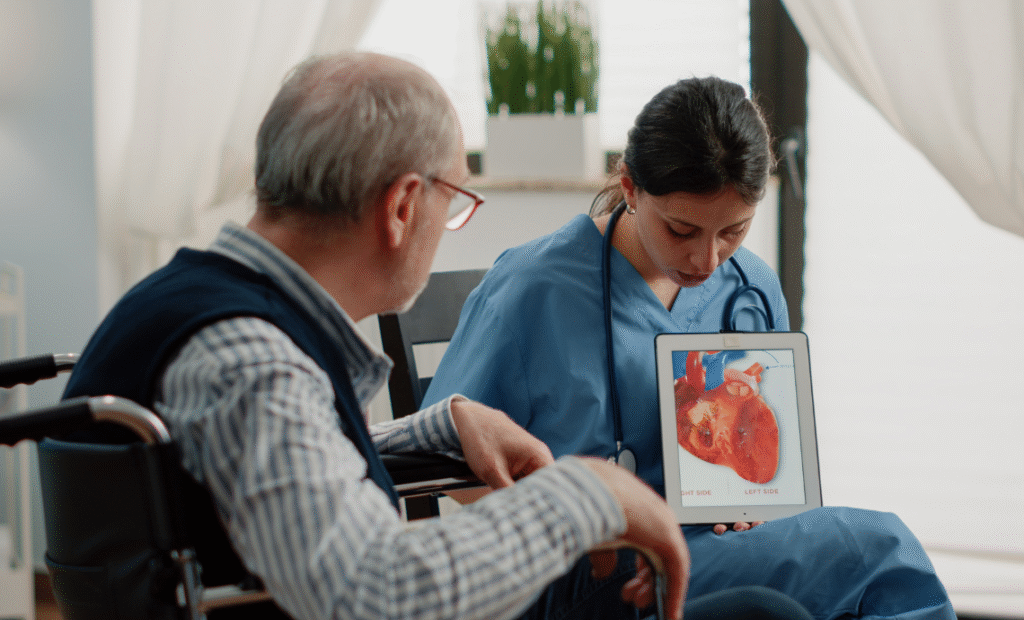Heart Health Isn’t Just About Medicines—It’s Also About Rehabilitation
After a heart attack, bypass surgery, or other cardiac events, most people focus on medications and surgical procedures. However, there’s another equally important—but often overlooked—part of heart health recovery: cardiac rehabilitation. If you’ve been wondering what is cardiac rehabilitation and why it’s so essential, this blog will explain everything you need to know.
Cardiac rehab is a medically supervised program that improves heart health through exercise, education, and lifestyle changes. It helps strengthen the heart, lower future risks, and support long-term well-being. Just like orthopedic physiotherapy aids recovery after injuries or surgeries, cardiac rehab empowers patients to build a healthier, more resilient heart for the future.
What Is Cardiac Rehabilitation?
Cardiac rehabilitation—often referred to as cardiac rehab—is a structured program developed for individuals who have experienced heart-related medical conditions or surgeries. It involves a multidisciplinary approach that includes:
- Supervised Exercise Training
- Heart-Healthy Lifestyle Education
- Nutritional Counseling
- Stress Management
- Smoking Cessation Support
- Risk Factor Management
This program is typically recommended for people recovering from:
- Heart attacks (Myocardial Infarction)
- Coronary artery bypass graft (CABG) surgery
- Angioplasty or stent placement
- Heart valve repair or replacement
- Heart failure
- Stable angina (chest pain)
According to Johns Hopkins Medicine, cardiac rehab reduces the risk of future heart attacks, improves survival, and enhances quality of life.
Why Cardiac Rehab Matters: Key Benefits of Cardiac Rehabilitation
Understanding what is cardiac rehabilitation is just the beginning—let’s explore why it matters so much.
1. Improved Heart Function
Exercise training improves your cardiovascular fitness, making your heart more efficient and reducing strain.
2. Reduced Risk of Future Heart Events
Studies show that cardiac rehab can reduce the chance of a second heart attack or related complications by up to 25% or more.
3. Better Emotional Well-being
Many patients experience anxiety and depression after heart issues. Cardiac rehab offers emotional support and coping strategies to improve mental health.
4. Lower Cholesterol and Blood Pressure
The program includes dietary and exercise guidance that helps reduce cholesterol levels and keep blood pressure under control.
5. Enhanced Physical Strength and Stamina
You’ll regain the ability to perform daily activities, from walking to climbing stairs, with greater ease and less fatigue.
6. Weight Management and Diabetes Control
The lifestyle changes promoted in cardiac rehabilitation often lead to healthy weight loss and better diabetes management.
What Does a Typical Cardiac Rehabilitation Program Involve?
Every cardiac rehab program is customized, but most include these core elements:
Exercise Training
Supervised sessions focusing on aerobic activity, strength training, and flexibility to improve heart health safely.
Education Sessions
Practical lessons about heart-healthy living, recognizing warning signs, and adopting lifelong healthy habits.
Counseling & Stress Management
Support to help manage stress, reduce anxiety, and promote relaxation techniques such as yoga or breathing exercises.
Dietary Advice
Guidance on reducing saturated fats, added sugars, and sodium, while increasing heart-friendly foods like fruits, vegetables, and whole grains.
Who Should Consider Cardiac Rehabilitation?
You may benefit from cardiac rehabilitation if you:
- Have recently had a heart attack or heart surgery.
- Are diagnosed with stable angina or heart failure.
- Have undergone a coronary intervention like angioplasty.
- Experience shortness of breath, fatigue, or reduced physical stamina after a heart condition.
Why Violet Physio Is Your Partner in Cardiac Rehabilitation in Gurugram
At Violet Physio, we understand the importance of a strong, healthy heart. Our cardiac rehab program is designed with your long-term heart health in mind. Here’s why our patients choose us:
- Qualified Cardiac Physiotherapists: Experienced specialists in heart-focused rehabilitation.
- Customized Rehab Plans: Tailored to your medical history, age, and fitness level.
- State-of-the-Art Facilities: Equipped for safe, effective cardiac recovery.
- Emphasis on Education and Prevention: We empower patients with knowledge.
- In-Clinic & Home Rehab Options: Flexible programs to suit your comfort and needs.
Ready to reclaim your heart health with professional support?
Learn about our expert team
Explore our treatment programs
Contact us to start your cardiac rehab journey
Additional Trusted Resources on Cardiac Rehabilitation
To learn more from expert sources:
- American Heart Association: Cardiac Rehabilitation Overview
- Mayo Clinic: Cardiac Rehabilitation Benefits
- Johns Hopkins Medicine: Cardiac Rehab Programs
Frequently Asked Questions (FAQs)
1. How long does a cardiac rehabilitation program last?
Most programs last between 8 to 12 weeks, with two to three sessions per week, but this depends on your condition and progress.
2. Is cardiac rehabilitation safe for older adults?
Yes, cardiac rehab is safe and effective for people of all ages, including seniors recovering from heart-related issues.
3. Can cardiac rehab completely prevent future heart problems?
While it doesn’t guarantee immunity from heart disease, it significantly lowers your risk and improves long-term heart health.
Conclusion: Prioritize Your Heart with Cardiac Rehabilitation
Now that you know what is cardiac rehabilitation, you can see why it’s more than just an exercise plan—it’s a life-saving program that improves your heart function, reduces future risks, and enhances your overall quality of life.
At Violet Physio, we’re committed to walking this journey with you through expert-guided cardiac rehab programs that are safe, effective, and empowering. Whether you’re recovering from a heart attack, surgery, or managing chronic heart disease, understanding what is cardiac rehabilitation is the first step—taking action is the next. Take the first step toward a healthier heart—contact us today!


